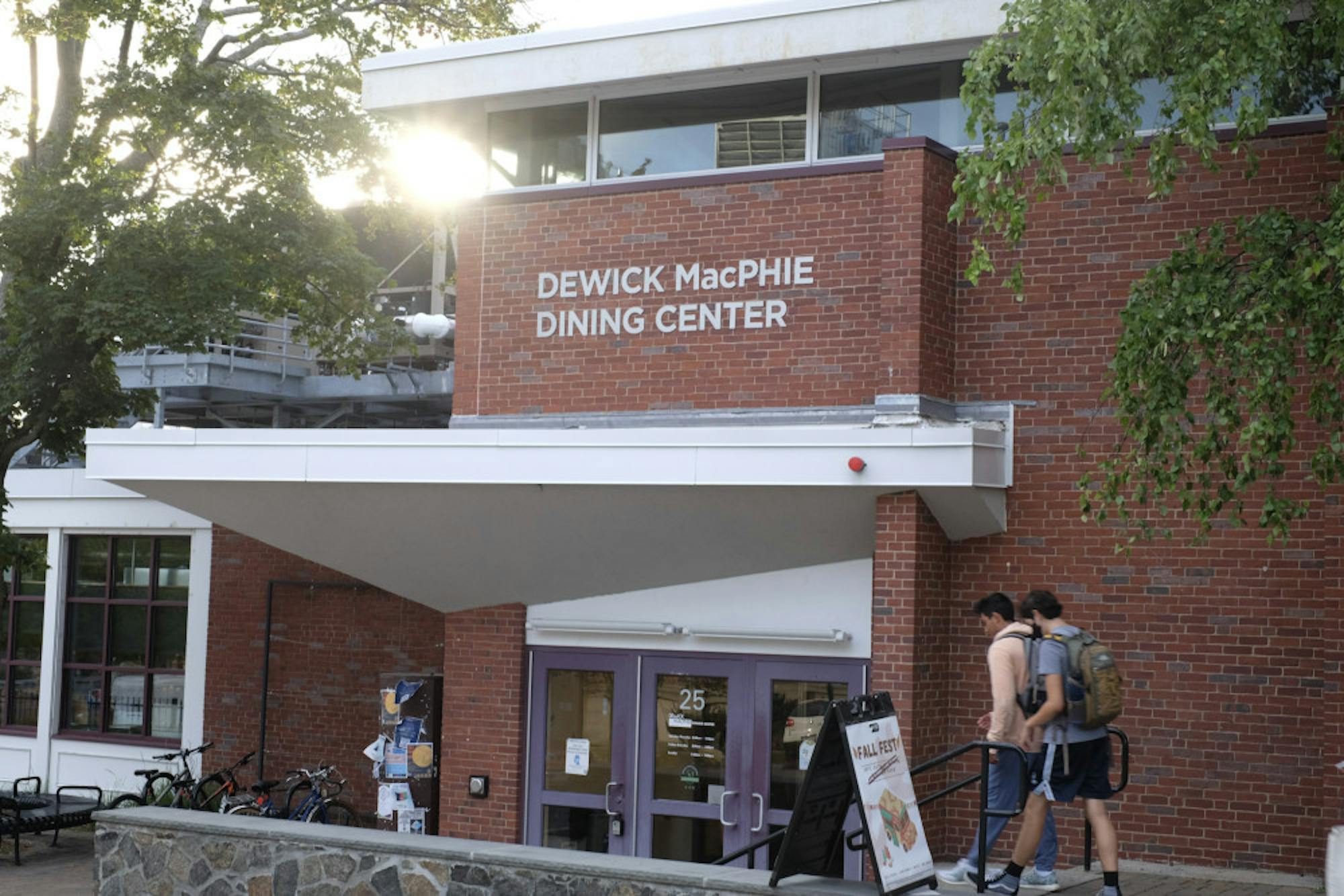Tufts University is working toward having 30% of its food be locally sourced by 2030, after meeting its previous goal of 20% locally sourced food by 2020, which was inspired by the Real Food Challenge. On Oct. 28, Tufts Dining hosted a Harvest Dinner featuring produce sourced from New Entry Sustainable Farming Project to advertise that Tufts Dining had reached this goal with 23% of food across on-campus locations being locally sourced in 2020. Tufts is also a part of the New England Food Vision, whose goal is to have New England produce 50% of its own food by 2060.
According to Patti Klos, director of Tufts Dining and Business Services, food must be from within New England, or within a certain radius of Tufts' campus, in order to be considered locally sourced.
“Twenty-three percent of the things we were purchasing were either produced or further processed in New England, or within about 250 miles of campus,” Klos said.
Products from some New England farms, however, such as milk, are sold via an international conglomerate and are thus not considered locally sourced food. Conversely, a Connecticut company that works with coffee and tea producers in other countries but roasts and flavors the products themselves is considered a part of the local economy.
EcoRep Violet Kopp said that while Tufts is making a significant effort to locally source food, it needs to make sure this remains a priority in the future.
“It’s a huge deal and says a lot about how mindful Tufts Dining is that 23% of their produce is locally sourced. ... But you know, don't stop there. It should be closer to 80%,” Kopp, a sophomore, said. “The worst thing we can do, I think, for such an urgent issue like the climate crisis is to be unrealistic. When we're thinking of solutions, we need to be pragmatic. We need to be tangible."
Kopp said that she hopes Tufts will continue to prioritize locally sourcing food, along with producing culturally sensitive meals and ensuring there are non-meat options in the dining halls.
In addition to its goals of increasing locally sourced food, Tufts Dining also is working toward implementing more sustainable dining options.
“We’re shifting away from animal proteins [to] plant-based foods, and students seem really interested in broadening their palates or their food consumption right along with us,” Klos said.
Produce for the Harvest Dinner was purchased from New Entry Sustainable Farming Project, and on Oct. 2, students had the opportunity to help cook harvest food for the Harvest Dinner.
New Entry was founded 23 years ago through the Tufts Friedman School of Nutrition Science and Policy as a project to educate immigrants and refugees with farming experience outside of the New England climate. Since then, New Entry has grown to coach anyone interested in farming.
New Entry also aids in the distribution of produce. According to Sara Poggi Davis, food hub program manager at New Entry, the farm coordinates a community-supported agriculture program to build connections within the Greater Boston area. They currently provide food for Salem and Tewkesbury public schools.
“I think looking for really steady exits for all this great produce to go to is part of [the New Entry project], and really making sure that this produce is getting to people who need it and maybe don’t have access to great produce,” Davis said. "We definitely have the capacity to provide more locally sourced food to Tufts, and it would be a big support to the farmers here who are always looking for markets.”
Jennifer Hashley, director of the New Entry Sustainable Farming Project, discussed New Entry’s relationship with Tufts Dining.
“The real thing that I see as a limiting factor is the price point. ... We’re trying to help provide farmers with a stable livelihood and decent prices," Hashley said. "The dining hall has a budget to make, and so sometimes those price points don’t align perfectly.”
Klos said she sees season and scale as prohibiting factors, noting that campus is most quiet during the summer.
“When they have the most abundant crops available, we have the least demand, but we would look forward to partnering with [New Entry] more,” Klos said.
Outside of providing food strictly to dining halls, Klos spoke about expanding grocery options on campus, such as at the Commons Marketplace or Hodgdon Food-on-the-Run, for students who are not on a meal plan. Klos also mentioned bringing back a CSA-pickup option that was accessible to students prior to the pandemic.
According to Hashley, New Entry used to host a farmers market on the Tufts campus beginning in 2010, but the community organization that ran the market stopped coordinating it after a few years. Tufts Dining has not been able to pursue projects like these in recent years due to COVID-19 restrictions.
“We’re super glad that [the Harvest Dinner] happened. I’d like to see that momentum continue and do more,” Hashley said. “We are a Tufts program. We should have a really strong relationship with Tufts Dining.”






